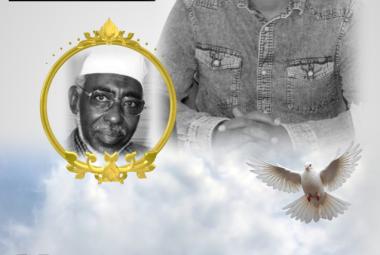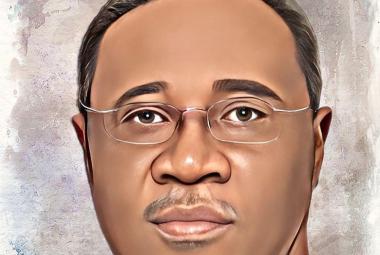The image of the King of the Ashantis at the coronation of King Charles III of Great Britain (Editor's note: May 06, 2023) circulated a lot this weekend on social networks in Côte d'Ivoire. Many Ivorians were very proud to see him in Westminster Abbey in his traditional dress as an Ashanti king. I don't know if the Arab dignitaries who wore their traditional Arab clothes caused so much pride among their compatriots or neighbors. It must be said that Arabs, whether at home or elsewhere in the world, most often dress in their traditional outfits. As also do the Hindus, or the Sikhs. I believe that our wonder at the image of the African king dressed in African dress in front of European crowned heads is commensurate with our alienation. For sure, we Ivorians would not have imagined our representative at such a ceremony dressed in an outfit other than the European costume. Or Arabic. On a discussion forum, a friend of mine wrote: « Thank you to the British who did not persist in destroying the habits and customs of the peoples they colonized ». To which I replied that to my knowledge, nowadays, nobody forces anyone to deny their habits and customs. I don't know how things happened during the time of colonization, but I know that when we became independent, it was in complete sovereignty that we decided, from President Houphouët-Boigny until recently, that it was forbidden to go to the presidential palace of our country dressed in anything other than a suit with a tie. No matter how angry the sun. Now we can go in traditional dress. But before this decision, I remember the day when I had been covering a trip by the President of the Republic to Paris. He was to meet his French counterpart at the Elysée. It was in summer. And we Ivorian journalists, we went to the Elysée in strict suits and ties. Nobody had asked us, but for us, it was self-evident. But on the spot, we noticed that our French colleagues were all in shirts, jeans, T-shirts. None of them were in costume, and they looked at us like strange beasts. I also remember the day when I was yelled at by a member of the Foreign Minister's cabinet because I had gone to that ministry, for the signing of an agreement with Japan, dressed in a simple shirt sewn by one of our greatest designers, not a suit. While we imposed the suit and tie on ourselves, former French colonies such as Mali, Niger or Senegal authorized the wearing of traditional outfits, which in reality are only Arab outfits, which testifies to another alienation. It also shows that this is not a matter of good or bad settlers.
Our problem is that we don't know at all what we want to be. Since our encounter with the others, the Europeans and the Arabs, we have persisted in wanting to be, not like them, but them. To be Black Europeans, Black Arabs, even if it means straightening our women's hair and bleaching our skin, but above all more African. We want to be all that is available, but especially not Africans. But we see for ourselves that it does not work. However, we do not have the courage to become ourselves again. So we are amazed to see those of us who dare. What amazes us even more is when we see white people adopting our habits and customs, dancing like us, especially our traditional dances, pounding our foutous. You can't imagine how much these videos of Europeans talking or dancing like us are circulating. In fact, these images contribute a lot to uninhibiting us.
The last point of resistance is religion. Throughout human history, we have killed ourselves and continue to kill ourselves for this. So, to ask certain African Christians or Muslims to return to their traditional religion is to ask them to regress. Because to become a Christian or a Muslim is to leave barbarism to become civilized. Once again, it will be the Europeans who will save our traditional religions. When we see many white people adopting our religions, then we will begin to look at them differently. It should be noted that more and more Europeans have started to convert to voodoo. Videos of these conversions are circulating on social networks. Let us end by quoting, as a good alienated African, a European author, Oscar Wilde in this case, who said: « be yourself. The others are already taken. »
By Venance Konan
*This article has been translated from French into English by Marcus Boni Teiga




















